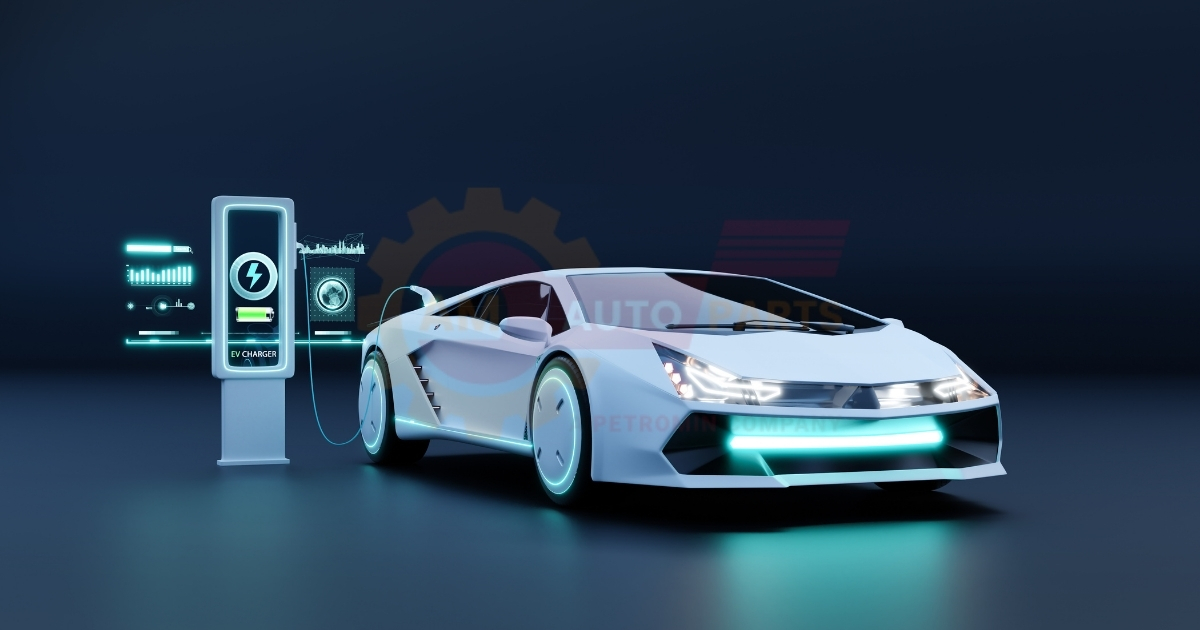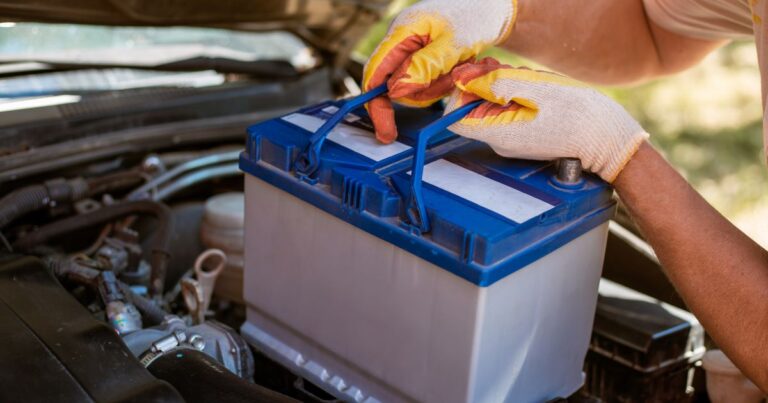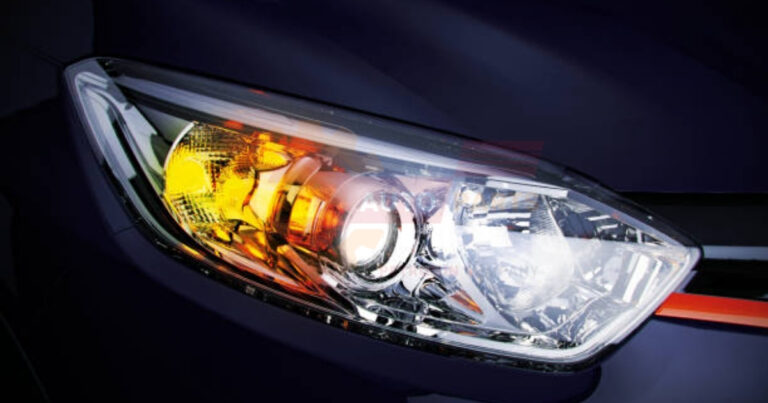Immediate Steps to Take
When your electric car battery dies unexpectedly, it’s crucial to act quickly and safely. Here are the immediate steps you should take:
Pull Over Safely
The first and most important step is to safely maneuver your vehicle to the side of the road. Use your hazard lights to alert other drivers and try to find a safe spot away from traffic.
Assess the Situation
Once you’re safely parked, take a moment to assess your surroundings and the status of your vehicle. Check if any warning lights are on and if you can access your car’s information display.
- Look for nearby charging stations
- Check your phone’s battery level
- Evaluate your location and time of day
Contact Roadside Assistance
Most electric vehicle manufacturers provide dedicated roadside assistance services. Contact them immediately for professional help and guidance.
- Keep your vehicle’s information handy
- Provide your exact location
- Describe the situation clearly
Planning Ahead for Long Journeys
To avoid finding yourself stranded with a dead battery, it’s essential to plan ahead, especially for longer trips.
Charge Planning Strategies
Effective charge planning can significantly reduce the risk of battery depletion during long journeys. Consider the following strategies:
- Map out charging stations along your route
- Plan stops at regular intervals
- Allow extra time for charging
Essential Items to Carry
Being prepared can make a significant difference if you encounter battery issues. Here’s a list of essential items to keep in your electric vehicle:
- Portable charger
- Charging cables for different plug types
- Emergency roadside kit
- Warm blankets (in case of cold weather)
- Snacks and water
| Item | Purpose |
| Portable charger | Emergency power boost |
| Charging cables | Compatibility with various charging stations |
| Roadside kit | Basic tools and safety equipment |
| Blankets | Warmth during unexpected stops |
| Snacks and water | Sustenance during extended waits |
Preventing Battery Depletion
Understanding how to prevent battery depletion is key to avoiding unexpected stops and ensuring a smooth driving experience.
Understanding Range Anxiety
Range anxiety is the fear of running out of battery power before reaching your destination. By understanding and managing this anxiety, you can make more informed decisions about your driving and charging habits.
- Familiarize yourself with your vehicle’s real-world range
- Learn to interpret battery percentage in relation to distance
- Practice efficient driving techniques to maximize range
Utilizing Onboard Systems
Modern electric vehicles come equipped with sophisticated onboard systems designed to help manage battery life and range. Learn to use these tools effectively:
- Energy consumption displays
- Range prediction features
- Eco-driving modes
- Regenerative braking systems
Roadside Assistance Options
When your electric car battery dies, knowing your roadside assistance options can save you time and stress.
Manufacturer-Provided Services
Many electric vehicle manufacturers offer specialized roadside assistance programs tailored to the unique needs of electric cars.
- 24/7 support hotlines
- Mobile charging services
- Towing to the nearest charging station
Third-Party Towing Services
In addition to manufacturer services, there are third-party options available for roadside assistance and towing.
- Research local towing companies familiar with electric vehicles
- Keep contact information for multiple services
- Understand the costs and coverage before using these services
| Service Type | Pros | Cons |
| Manufacturer | Specialized EV knowledge | May have limited coverage areas |
| Third-party | Wider availability | Potential lack of EV expertise |
Charging Solutions in Remote Areas
Finding charging solutions in remote areas can be challenging but not impossible. Here are some options to consider:
Portable Charging Devices
Portable charging devices can be a lifesaver when you’re far from traditional charging infrastructure.
- Level 1 portable chargers (120V)
- Level 2 portable chargers (240V)
- Solar-powered charging options
Emergency Charging Stations
Some regions have begun installing emergency charging stations in remote areas. Research and locate these stations along your planned route.
- Look for roadside emergency charging pillars
- Check for charging options at remote gas stations or rest areas
- Consider community-based charging networks in rural areas
Jump-Starting an Electric Vehicle
While jump-starting an electric car is different from a conventional vehicle, it is possible in some situations.
Compatibility with Traditional Methods
Electric vehicles typically can’t be jump-started in the same way as gasoline-powered cars. However, some models allow for a 12V battery jump-start to power auxiliary systems.
- Consult your vehicle’s manual for specific instructions
- Never attempt to jump-start the main high-voltage battery
- Use caution and proper safety equipment
Specialized Jump-Starting Techniques
Some electric vehicles have specific procedures for emergency starts or accessing backup power.
- Auxiliary battery access points
- Emergency start buttons or switches
- Manufacturer-specific jump-start procedures
Towing an Electric Car Safely
If charging isn’t an option, towing your electric vehicle may be necessary. However, it’s crucial to do so safely to avoid damage.
Proper Towing Procedures
Follow these guidelines for safe towing of an electric vehicle:
- Use a flatbed tow truck whenever possible
- Avoid towing with two wheels on the ground
- Disconnect the main battery if recommended by the manufacturer
Potential Risks and Precautions
Be aware of the potential risks associated with towing an electric vehicle:
- Damage to electric motors
- Battery drainage during towing
- Activation of safety systems
Always consult your vehicle’s manual and inform the towing service that they’re dealing with an electric car.
Impact of Battery Depletion on Vehicle Systems
Understanding how a completely depleted battery affects your electric vehicle can help you manage the situation more effectively.
Effects on Electrical Components
A fully depleted battery can impact various electrical systems in your vehicle:
- Loss of power steering and brake assist
- Disabled climate control systems
- Potential issues with keyless entry and ignition systems
Restarting Procedures
Restarting an electric vehicle after complete battery depletion may require specific procedures:
- Allow the battery to charge to a minimum level before attempting to start
- Follow manufacturer-specific reboot procedures
- Be prepared for potential system resets or recalibrations
Alternative Transportation Options
When your electric car is out of commission, consider these alternative transportation options:
Ride-Sharing Services
Ride-sharing services can provide a quick solution to continue your journey:
- Use smartphone apps to request rides
- Consider carpooling options for longer distances
- Look for electric vehicle-specific ride-sharing services
Temporary Vehicle Rentals
If you need a longer-term solution, consider renting a vehicle:
- Traditional car rental agencies
- Peer-to-peer car sharing platforms
- Electric vehicle-specific rental services
| Option | Best For | Considerations |
| Ride-sharing | Short trips, urban areas | Cost for longer distances |
| Car rental | Extended periods, long distances | Availability of EVs |
Battery Maintenance and Longevity
Proper battery maintenance can help prevent unexpected battery depletion and extend the life of your electric vehicle’s battery.
Regular Inspection Tips
Perform these regular checks to maintain your battery’s health:
- Monitor battery performance and range
- Check for any physical damage or leaks
- Keep the battery and charging port clean
Optimal Charging Practices
Follow these best practices for charging your electric vehicle:
- Avoid frequent fast charging when possible
- Keep the battery charge between 20% and 80% for daily use
- Follow manufacturer recommendations for long-term storage charging
By following these guidelines and being prepared, you can confidently handle situations where your electric car battery dies. Remember, All Makes Autoparts offers a range of products and accessories to help you maintain and care for your electric vehicle, ensuring you’re always ready for the road ahead. Automotive power threshold is the point where a car’s engine starts to produce enough power to move the vehicle forward
Ideal car voltage A car battery should have about 12 to 14 volts for the vehicle to run properly






